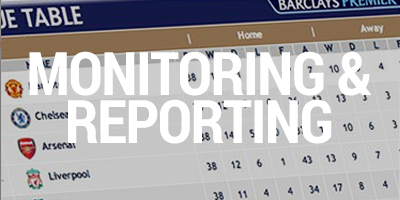Being a sponsor mixed-method Agile and waterfall projects

Being sponsor mixed-method Agile and waterfall projects may raise different challenges to those faced by project managers, we look at some of these in this blog.
Having worked with, and supported sponsors, for many years this is a topic that has been on my mind for a number of months.
If we accept that hybrid projects are different and that we should not automatically use all our ‘standard’ project management techniques I would argue that the same is also true for our approach to sponsorship.
Consider the following:
You are (or have been working with) a successful and experienced sponsor. To date, as Project Sponsor, you felt confident that:
- the business case was valid and financially sound
- you understood the benefits position – and the progress being made towards realisation
- the project’s status was clear at all times
- you could confidently:
- engage with your executive colleagues and other key stakeholders
- be a powerful advocate for the project’s value
- facilitate negotiations
- make sound project decisions.
In short – you were acting as an effective Project Sponsor!
This is comparatively easy when you know from personal experience what is being delivered and how. It’s for your function / organisational area or it is your current expertise area. You understand, or at least can appreciate, the nuances of the approaches being taken. The relative level of uncertainty in Agile based projects doesn’t faze you – or alternatively – the enhanced certainty of the more traditional approaches and reporting give you increased confidence.
However, the ‘new’ world of hybrid is on the horizon and approaching rapidly. You have been asked to sponsor mixed-method Agile and waterfall projects critical business project – which has a number of differing commercial aspects – most of which are external to your own operational and expertise area.
- Are you ready?
- How do you know what differences there might be? (especially if you have only sponsored projects using either Agile or the more traditional approaches)
- Has your project manager extensive experience of managing projects involving one or other development approaches?
- Or, even better sponsor mixed-method Agile and waterfall projects hybrid projects?
- Don’t forget, projects tend to be more successful when the sponsor and project manager work in partnership.
If you are uncertain about any of the above, as a starter for 10, consider the following. Given the differing hybrid challenges found in the following areas for project managers – changing your sponsorship approach to sponsor mixed-method Agile and waterfall projects is also likely to be beneficial.

Business case: if the end result of any aspect of the project is uncertain – your approach to the organisation’s RoI is likely to need more careful consideration and development in the business case.

Monitoring and reporting: if you are used to one type of reporting, for example, monthly status reports against the ‘to go’ position of the known deliverables then the Agile sprint approach to completion will possible more challenging. And if your project has differing types of development approaches –how can you be confident the project is on track?

Progress towards benefits realisation: another potential source of difficulty – if the end position for some of the deliverables is uncertain – how can you be confident the benefits can be achieved? What should you be considering?

Stakeholder engagement: if your executive or other business colleagues are in any way uncomfortable with the increased levels of uncertainty – do you have enough knowledge and confidence to be the advocate you need to be?

Transition to operations: your role in this area potentially is even more important than ever. If the end user and their management are uncertain of ‘drop’ dates or level of completion then the embedding and consequent benefits realisation will become more challenging.
Although I believe there are approaches that a ‘hybrid’ sponsor should be aware of, and use, to be successful when sponsoring hybrid projects, I also believe that these will be most effective when both the sponsor and project manager are working together in partnership.
So if you are about to embark on your first hybrid sponsorship or from experience are aware that these require different approaches what can you do?
Firstly, consider your own and your project manager’s experience.
Secondly, I suggest you discuss some of the points above with each other and your colleagues for examples of approaches taken within your organisation that have been successful.
If hybrid is new, or your networking doesn’t give you the confidence you need please do contact me.
Alternatively if your experience as a hybrid sponsor is different to the above or you would like to extend the conversation…please drop me a line. You can contact me at JNichols@citi.co.uk
Below you can access some of my other blogs written on similar and related topics:
What is your learning style?
No, not your dress sense - I’m referring to your learning style. Why? Because when it comes to your personal professional development......
08 November, 2017Traditional project management vs Agile
There appears to be three factors that demand special attention to enable organisations to make the best use of the evolving agile approaches to delivery and change management....
18 June, 2018The promise of PRINCE2 Agile – a perfect storm?
A perfect storm of circumstances in UK public sector project management is helping open the door to agile methods, and the promise of PRINCE2 Agile....
30 March, 2017





